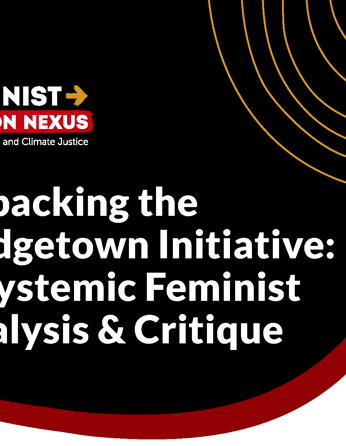
Advocacy Brief
Jun 21, 2023
Stay Informed
Receive updates on our progress, thinking, and strategies as we advocate for gender-just climate, environment, and economic policies around the world.
Resources


Support Our Work
Your donation provides us with the stable foundation we need to build the feminist future we’re working to realize.
Donate Today